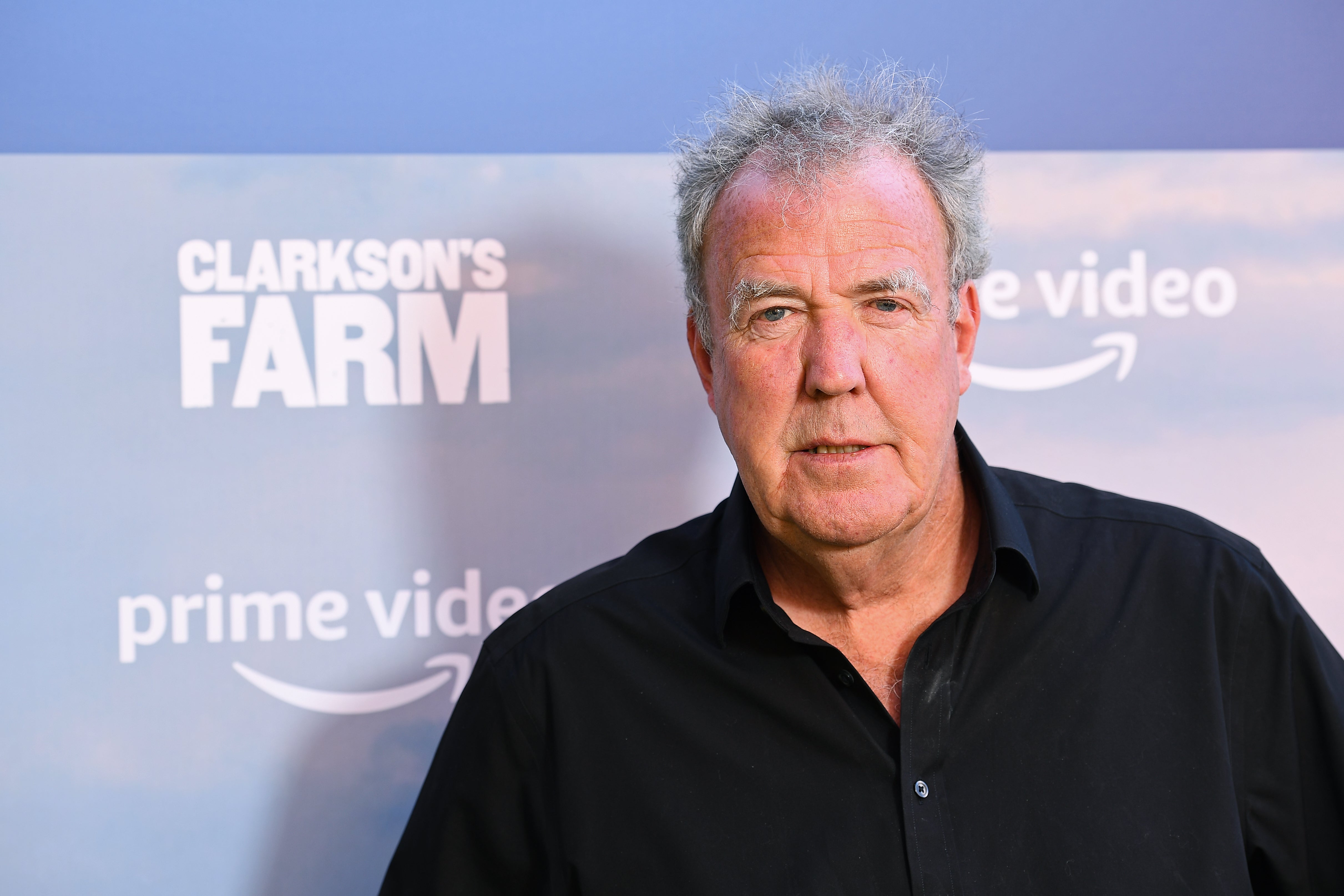Cheap, drunk and vulgar: I’m fed up with anti-Scottish bigotry
Apparently all 5 million of us Scots are stingy with sterling, have irremediable stupidity and are in the grip of a smack addiction


Your support helps us to tell the story
From reproductive rights to climate change to Big Tech, The Independent is on the ground when the story is developing. Whether it's investigating the financials of Elon Musk's pro-Trump PAC or producing our latest documentary, 'The A Word', which shines a light on the American women fighting for reproductive rights, we know how important it is to parse out the facts from the messaging.
At such a critical moment in US history, we need reporters on the ground. Your donation allows us to keep sending journalists to speak to both sides of the story.
The Independent is trusted by Americans across the entire political spectrum. And unlike many other quality news outlets, we choose not to lock Americans out of our reporting and analysis with paywalls. We believe quality journalism should be available to everyone, paid for by those who can afford it.
Your support makes all the difference.Since childhood, I have been aware of hostile jabs mocking Scottish people, on TV and in print, with the source typically being English. Ranging from inane jokes to rather extreme scorn, there is a proclivity in the English media to denigrate Scots arbitrarily.
It is an irksome inclination that permeates panel conversations and columns; one that labels Scots as perpetually cheap, drunk and unintelligible. These existing attitudes are obviously leftovers from a tense historical relationship, but I am at a loss as to why such narrow-minded humour, that relies on trite stereotypes, endures.
Apparently all 5 million of us Scots are stingy with sterling, have irremediable stupidity and are in the grip of a smack addiction. Why does this bias persist? A somewhat rhetorical question perhaps, since it is so embedded in the superiority of English identity. I neither want to, nor am equipped to, deconstruct the English psyche, but I can point to personal experiences and cultural markers that exemplify their commitment to Scottish disdain.
Consider the design of a standard UK passport: it depicts a unicorn (Scotland’s national animal) shackled with chains and choked by a crown, thus conveying Scotland as subordinate property under the state. Or recall when Boris Johnson greenlit a prejudiced poem as editor of The Spectator magazine that proposed the extermination of the Scottish, with the opening line: “The Scotch – what a verminous race!”
See also the arrogant assumption that non-English people will be familiar with English mores: when my Welsh friend and I were recently in the company of a London native, she was unable to process the fact that we did not know the lyrics to “God Save the Queen”. I later Googled it and discovered its sixth verse rang “rebellious Scots to crush” until 2007. Hmm.
In certain sections of the press, casual antagonism against Scotland features regularly. I have come to notice a pattern with certain English journalists: any time they mention Scotland, there is an attendant negative connotation. (Dear Jeremy Clarkson and Rod Liddle, we mind our own business and yet occupy such space in your minds – why is that?) When I read their columns I cringe with embarrassment, not so much at my identity being targeted, but at their writing.
Do these men think they are providing any meaningful insight? “You should be grateful to us for introducing you to proper food and trousers.” What uncivilised savages we were before! Thank you for enlightening us, Jeremy. You are truly a pillar of culture and nobility – one who assaults people on set and spouts racial slurs.
Clarkson’s ignorant takedowns go from the relatively tame – waxing on the prospect of Scottish Independence: “I shall miss you with your funny skirts and your ginger hair” (did he know he was paraphrasing the lyrics to “Valerie” by The Zutons?) – to the overtly classist and ableist: in an episode of The Grand Tour he described driving “through a council estate of hypodermic needles”.
Liddle too, routinely insists on this particularly loaded jab that all Scots are addicts: “eating a deep-fried Mars Bar” after “mainlining heroin in a Glasgow basement” and when obnoxiously speaking of Scots who believe they would be financially secure in an independent Scotland, he suggests “the methadone has kicked in”.
On British television, there is a general obfuscation of Scottish identity. Glaswegian comedian Limmy, ever-perceptive in his cultural commentary, delivered a perfect meditation on Britain’s Got Talent’s contribution to such erasure; specifically the absurdity of its reluctant inclusion of Glasgow in its audition process.
Similarly, on ITV’s Love Island, when Scottish contestants give their animated introductions, they merely state that they are “from Scotland”. On such a carefully constructed and overly produced show, one cannot help suspect this lack of regional specification was instructed, because of course why would anyone down south have any knowledge of very famous Scottish cities?
Furthermore, talk shows will have you believe lucidity is totally out of the question when it comes to conversing with a Scot, as the impenetrable accent can only serve to stupefy and bewilder. Kevin Bridges’s highly enunciated, clear voice has repeatedly been received as incomprehensible on chat shows. As a guest on The Jonathan Ross Show, Bridges was met with an incredulous glare by his company, who did not even feign comprehension.
An almost identical scenario played out on The Graham Norton Show too, in which Kevin played a good sport in making a joke out of having to constantly code-switch: “I think that’s why we die so young in Scotland, because it’s just exhausting… so much more effort, you need to translate in your head, and then go say it!”. As hosts, both Norton (though Irish, he helms a show that is distinctly English in its sensibilities) and Ross indulged and facilitated the derision, and of course the audience then erupted with laughter.
To keep up to speed with all the latest opinions and comment, sign up to our free weekly Voices Dispatches newsletter by clicking here
Inevitably, what is presented in the media informs the outlook of the public. At a music festival in Manchester last year, my friends and I kept a tally of all the anti-Scottish remarks cast our way, and over two days the number exceeded multiple hand counts (and that was excluding the Braveheart bellows: men shouting the non-sequitur, spit-filled “FREEDOM!” at us).
Such insensitivity extends to dirty looks received when buying something with Scottish pound notes, and the impossibility of pursuing this method of purchase without a passive aggressive comment and a contemptuous inspection of Robert the Bruce’s paper profile. And of course, there is always the elastic potential to ridicule even very common vernacular; my use of the word “wee” – a standard substitute for “little” – was a running gag for the entire English cohort of a summer camp I attended as a teen.
In short, continued adoption of such jejune rhetoric is simply draining to witness. If you are going to be a bigot, at least don’t be banal about it. And whilst my account may read as coming from a place of deep emotional hurt, the true pain resides in my brain, as a result of reading Clarkson and co’s staggeringly uninformed school of thought on what defines Scottish identity. Oh, the profundity of English hubris!
Although, some redress seems to be creeping into the mainstream, albeit slowly, what with every scene in Channel 4’s Derry Girls being punctuated with a gentle roast of James, for no other reason than his being, well, English.
Join our commenting forum
Join thought-provoking conversations, follow other Independent readers and see their replies
Comments